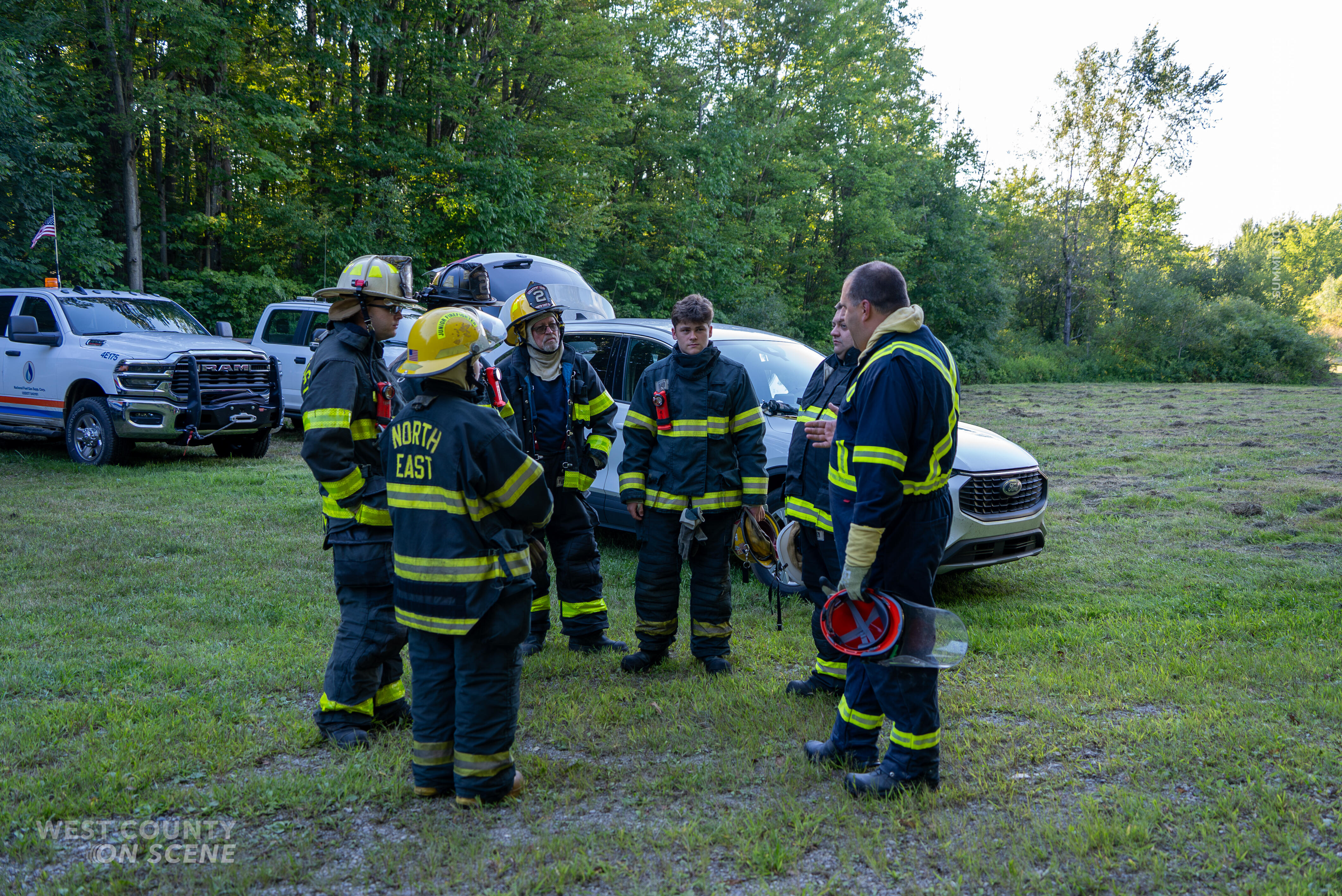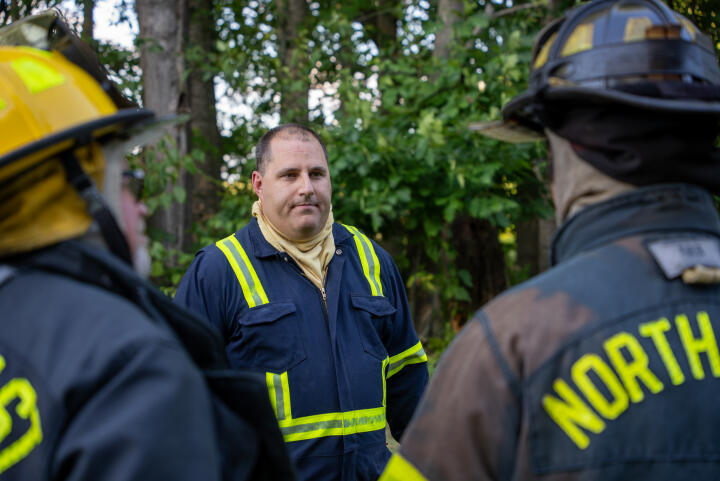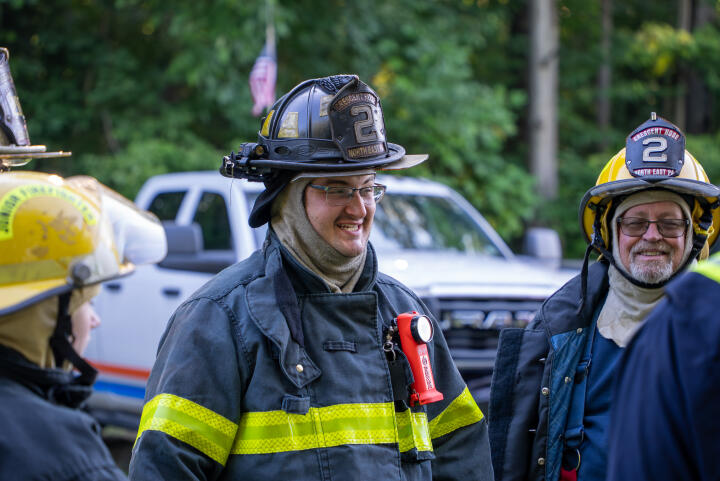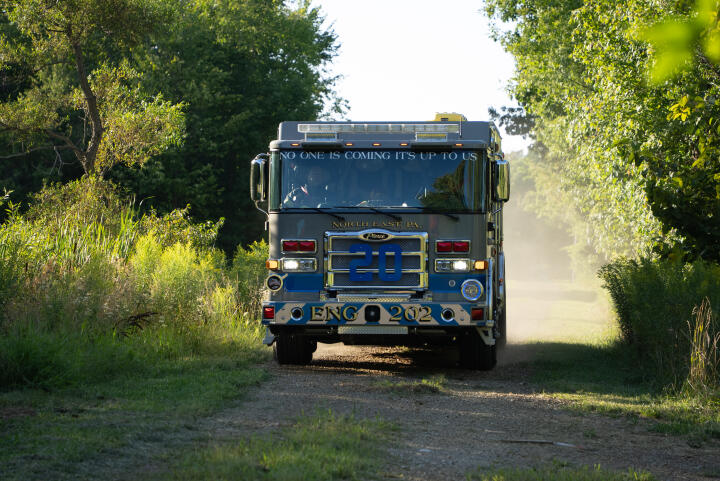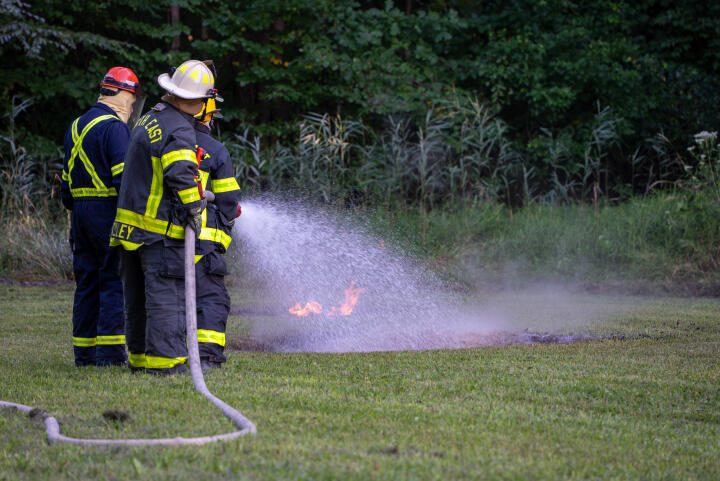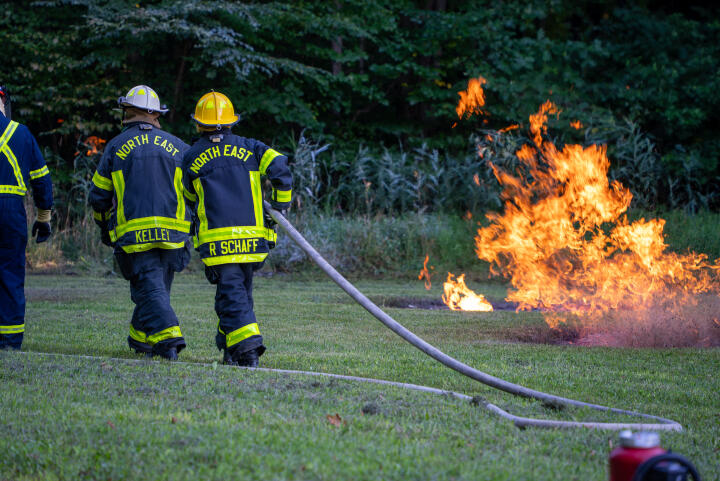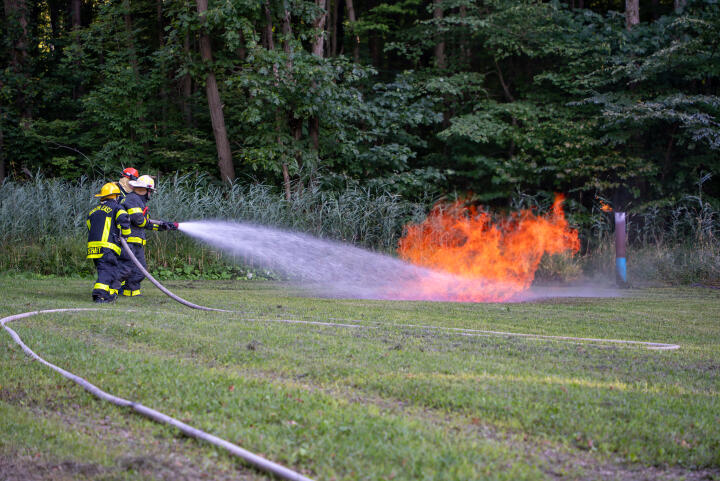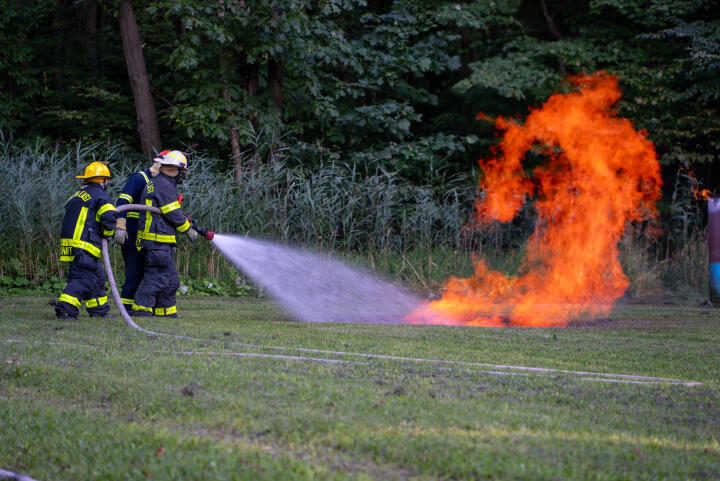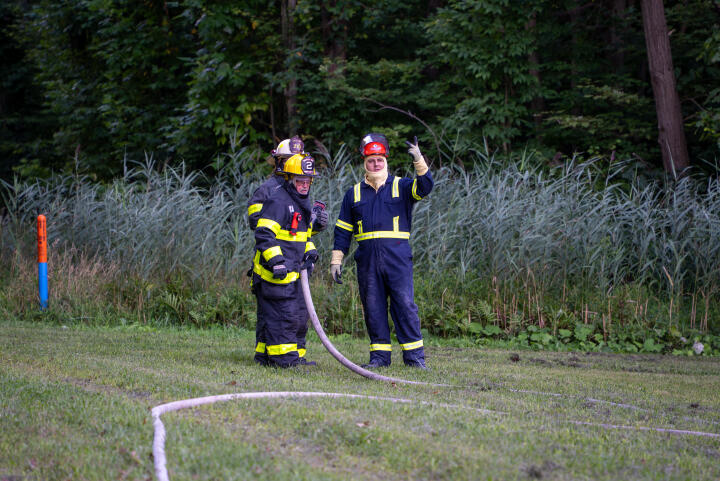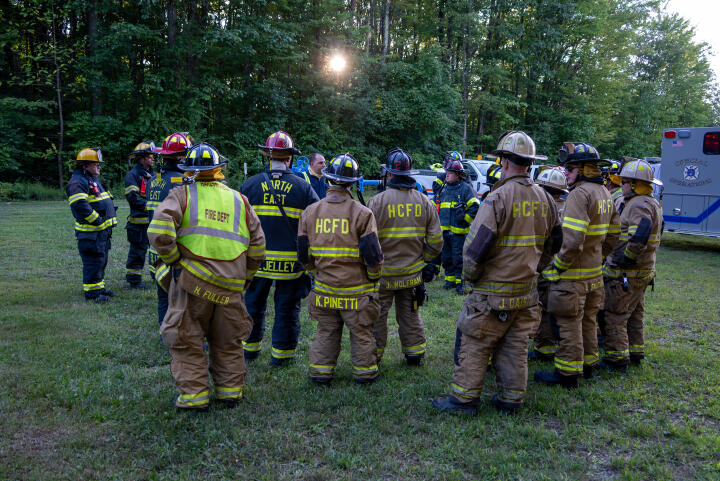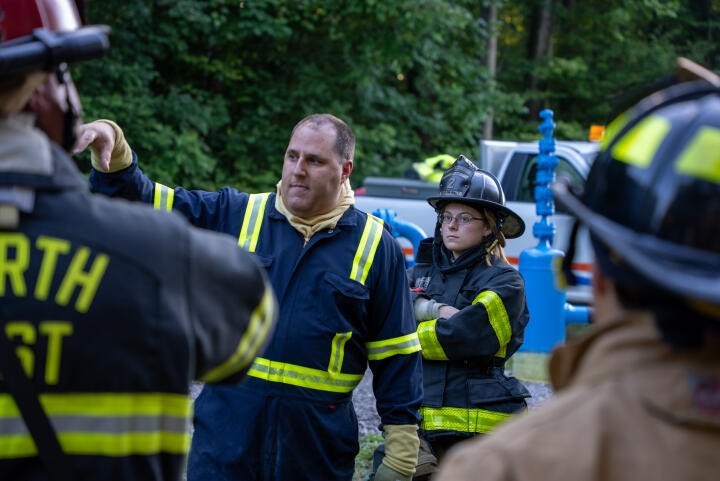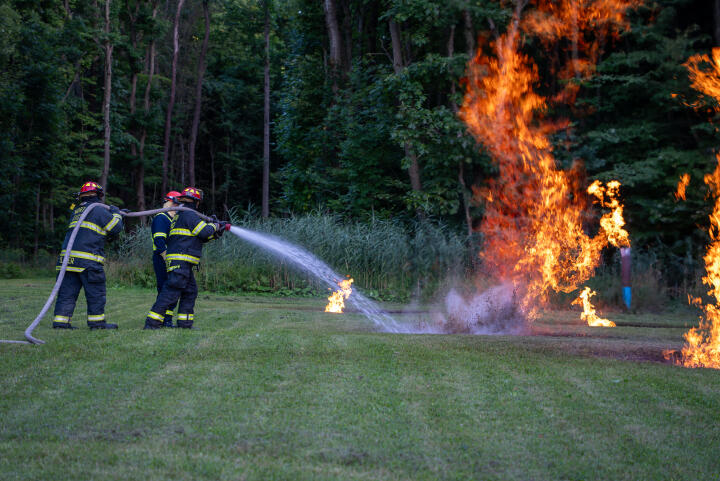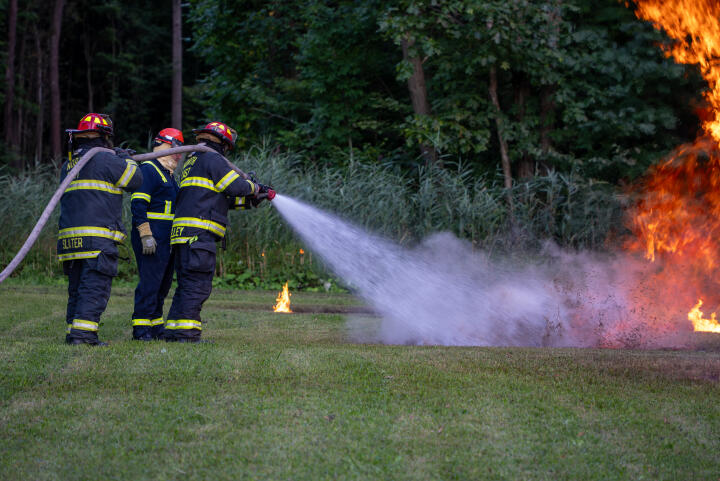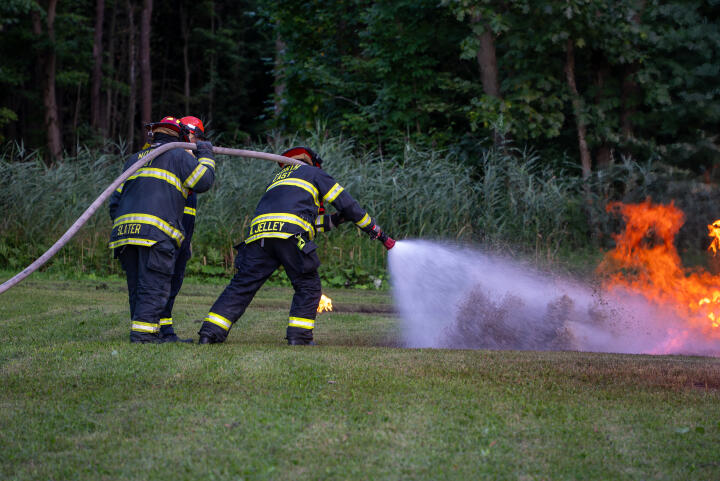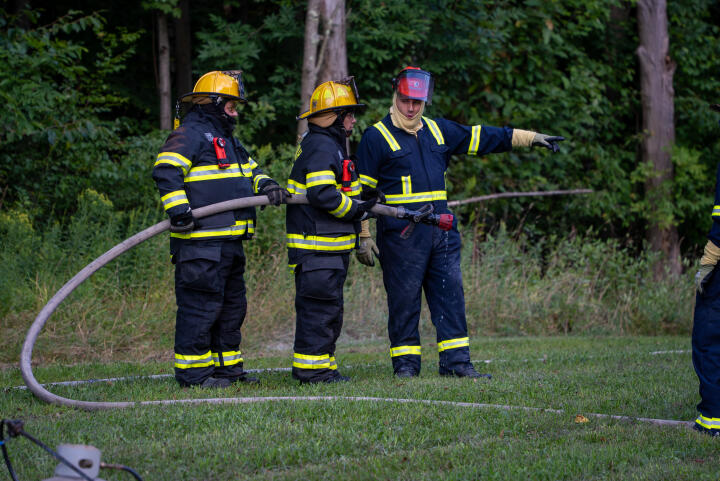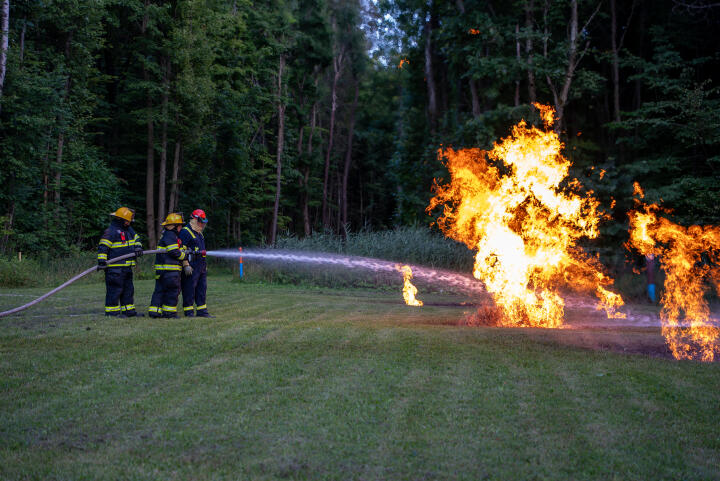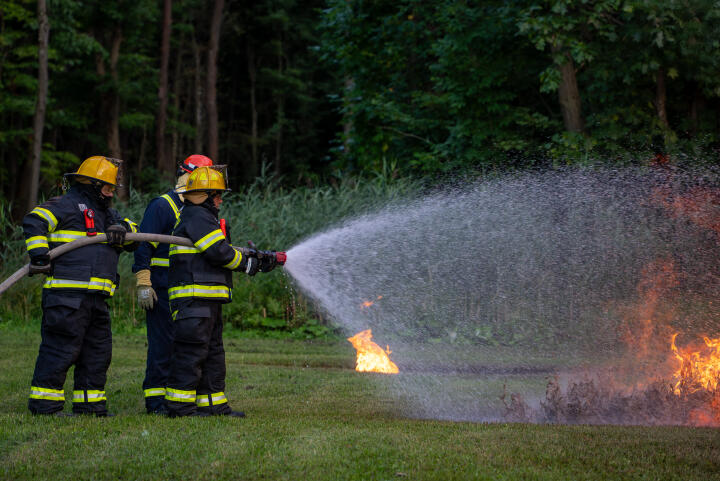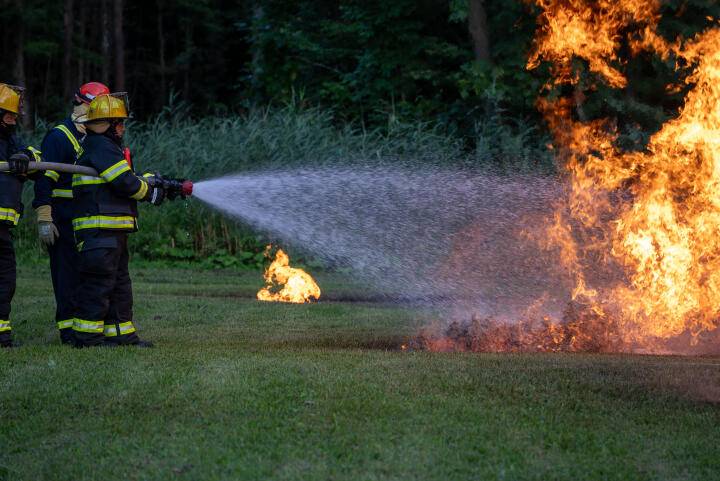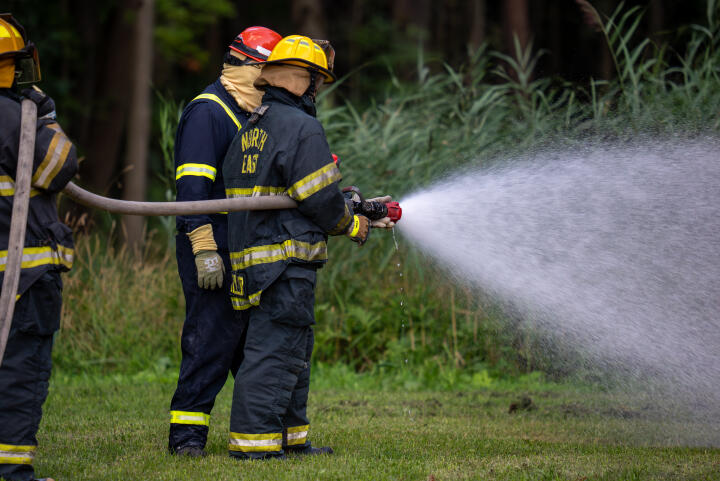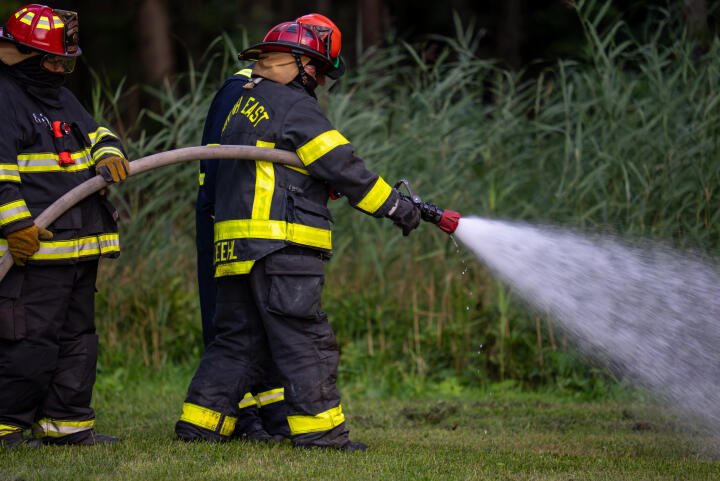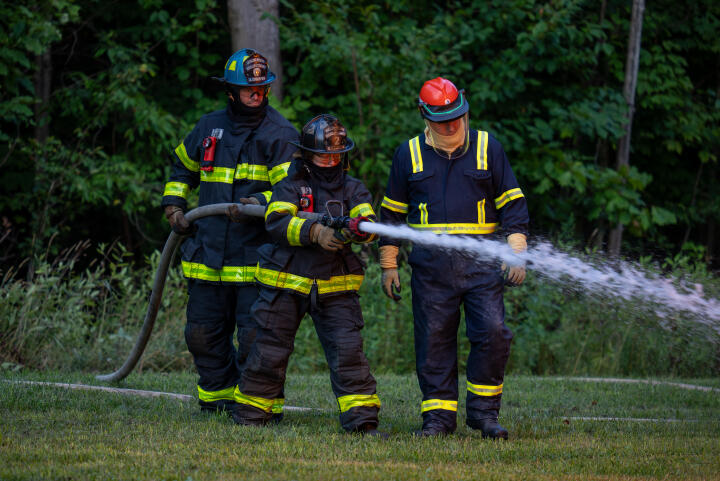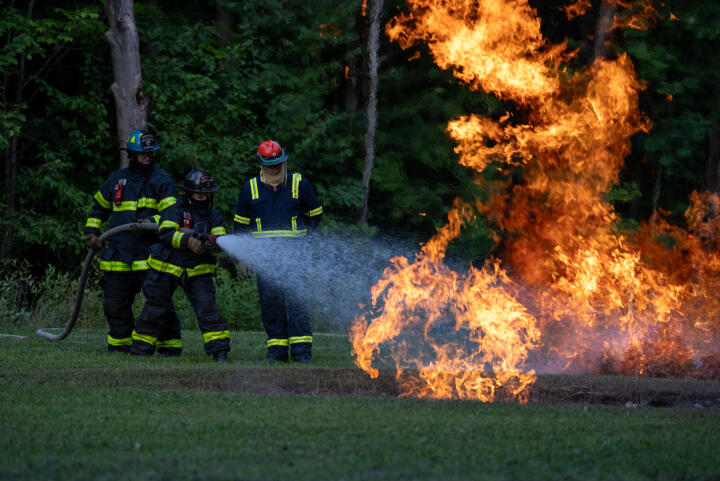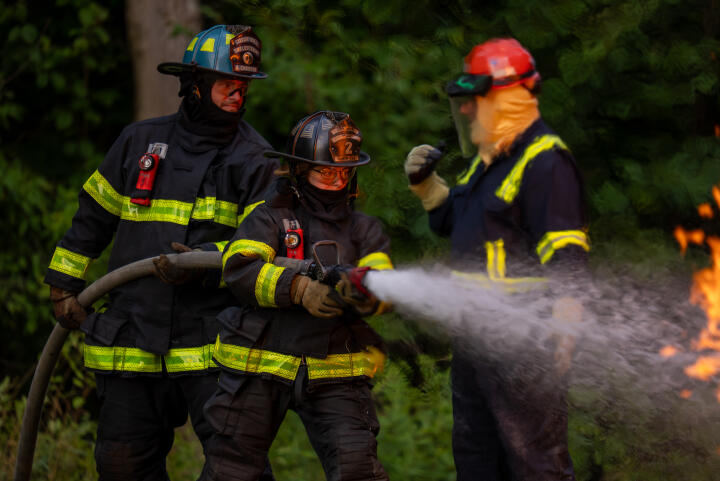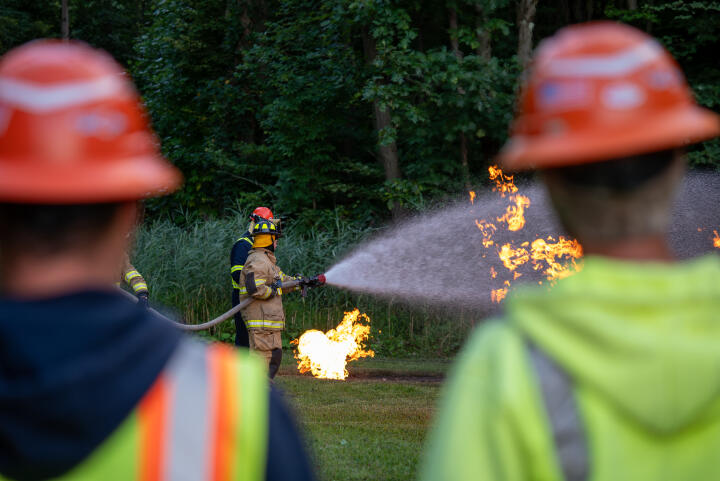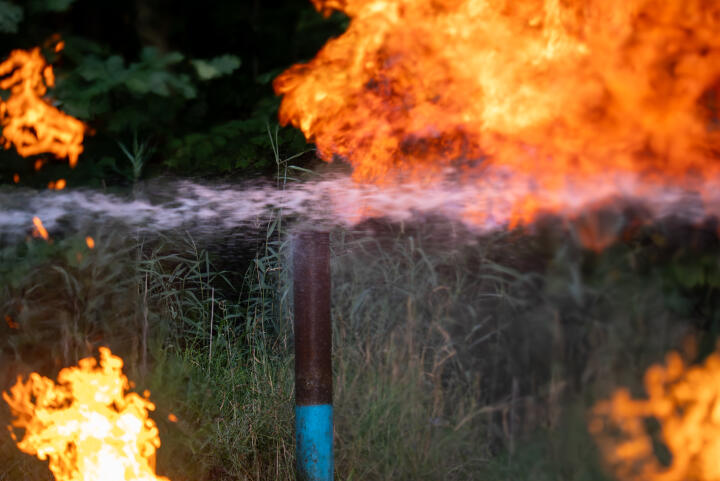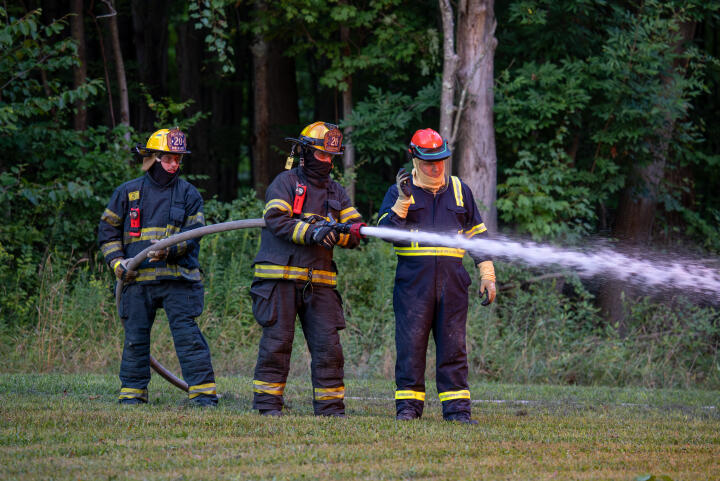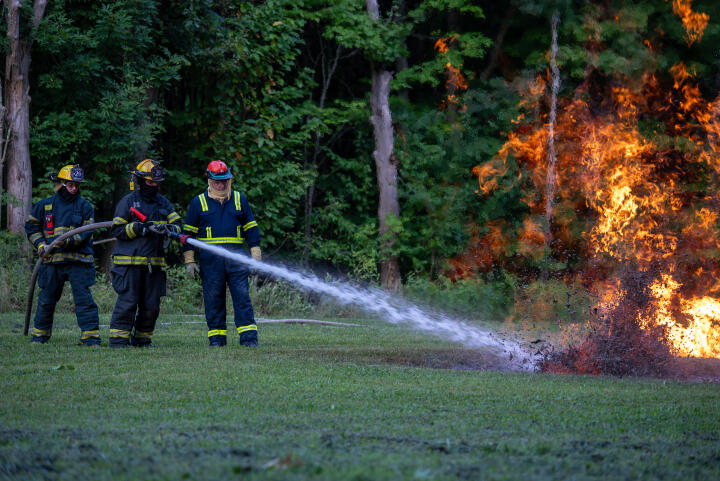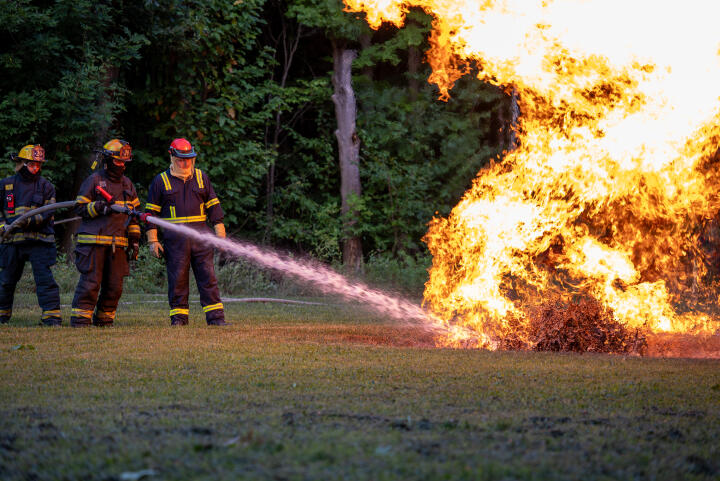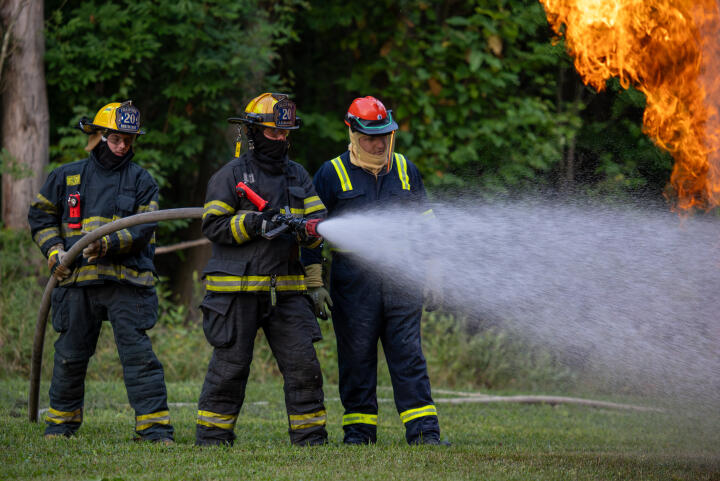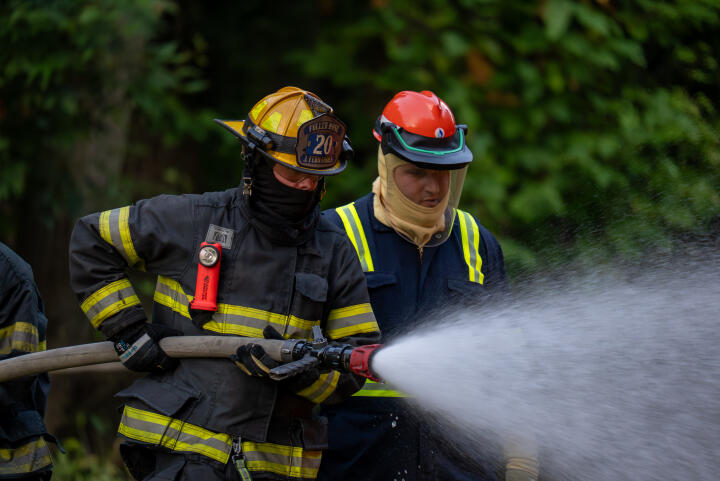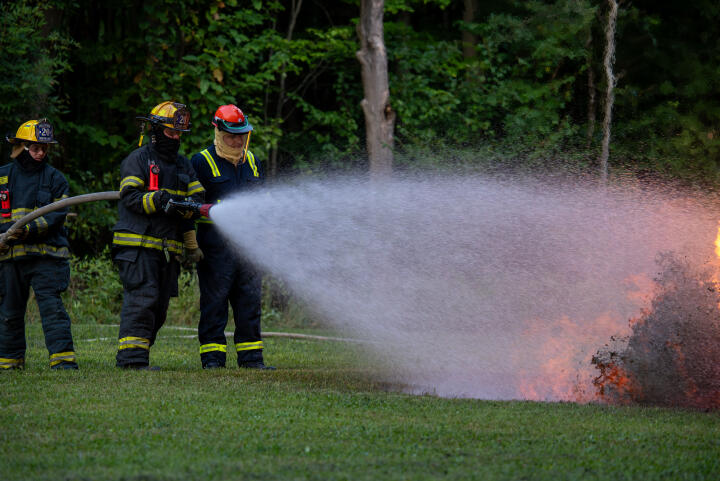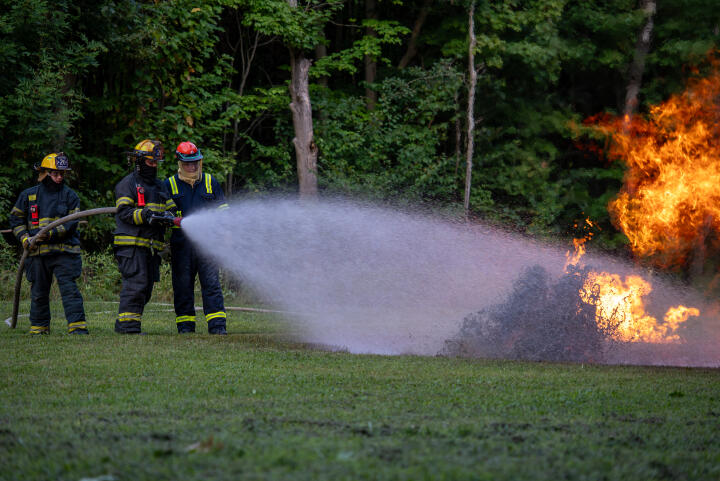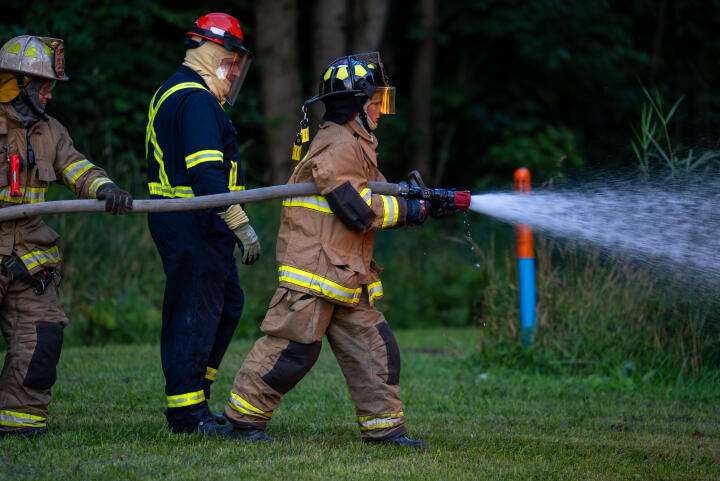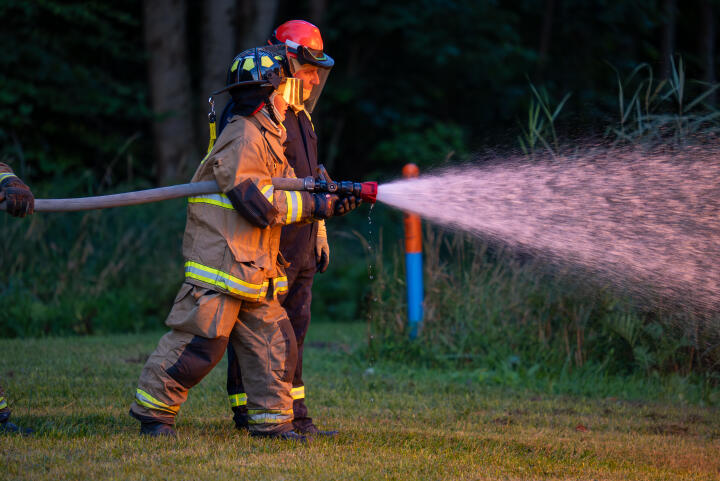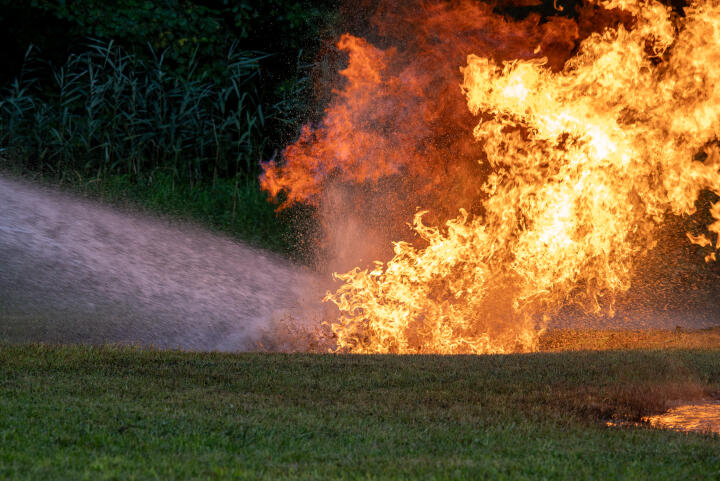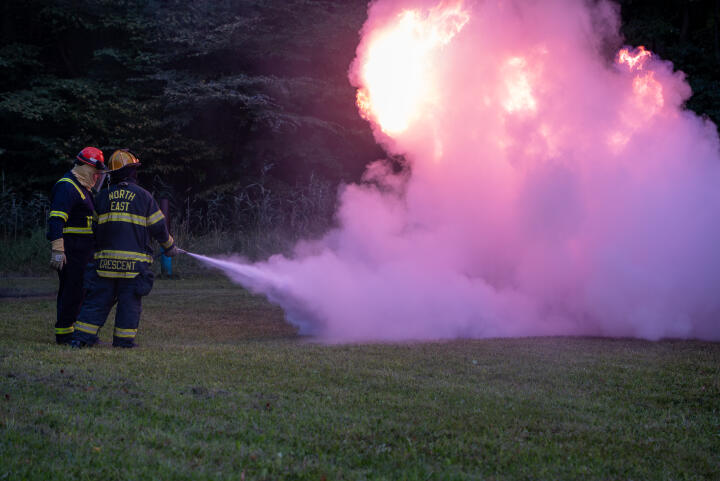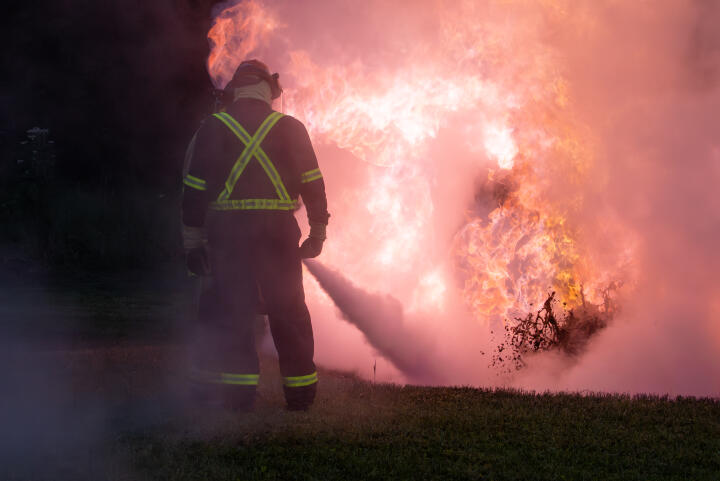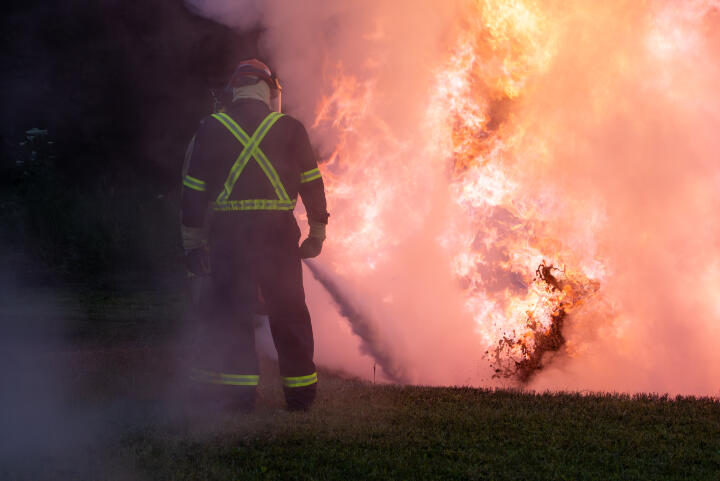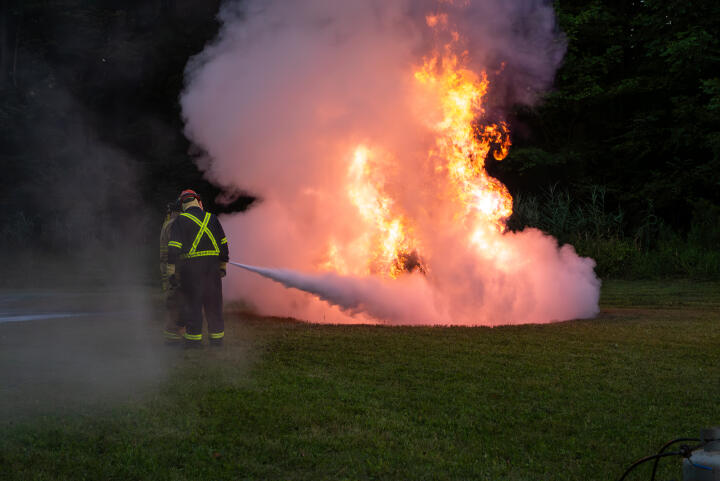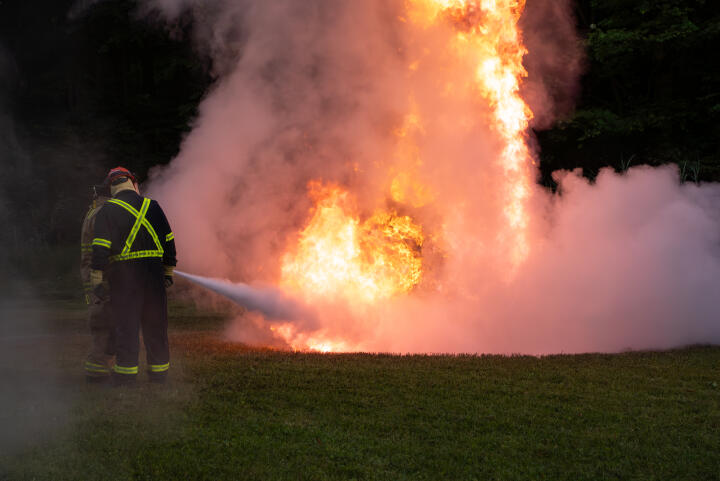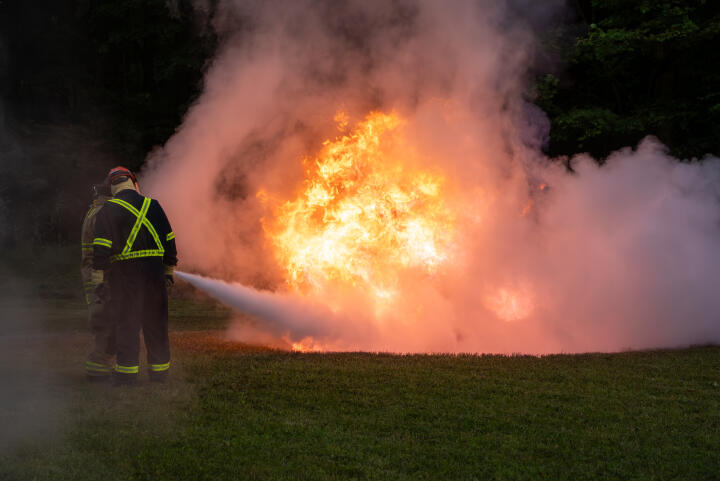Firefighters Tackle Live Gas Fire Scenarios in Specialized National Fuel Training
Narrative
Summit Township, PA – Three east county fire departments, Fuller, Crescent, and Harborcreek, gathered this week at National Fuel’s Fire Field on Robinson Road for the second phase of a specialized training program focused on natural gas emergencies.
The program, designed in two parts, first introduced participants to the classroom side of natural gas safety earlier this spring. That session covered an overview of National Fuel operations, the science and hazards of natural gas, carbon monoxide awareness, and lessons learned from past incidents across the United States.
This week’s field component brought theory into practice. Firefighters rotated through five live-fire scenarios, including a ruptured gas well, a line strike, and sheared piping, all modeled after real-world emergencies. Crews gained hands-on experience using both water suppression tactics and chemical fire extinguishers designed specifically for natural gas-fed fires. The training highlighted how challenging it can be to extinguish natural gas with water alone, while demonstrating the effectiveness of specialized suppression tools.
“Tonight’s National Fuel Gas Emergency class was an outstanding experience,” said Chris Skrekla, Captain of Fuller Hose. “The combination of classroom education and hands-on training provided valuable insight into emergency response procedures.”
A key emphasis from National Fuel’s instructors was scene management and responder safety. Firefighters were reminded that in many cases, the safest course of action is not extinguishment but rather maintaining a secure perimeter, protecting nearby exposures, and allowing controlled burning until the fuel source can be shut off. Attempting to prematurely put out a gas fire, instructors cautioned, risks allowing dangerous vapors to accumulate, creating the potential for larger, more hazardous situations.
Skrekla added: “Learning directly from professionals in the field gave us practical knowledge and real-world strategies to effectively handle gas-related emergencies. We’re grateful for the opportunity and highly recommend this training to other departments in Erie County.”
The joint training gave local departments valuable exposure to scenarios they may encounter in the field, ensuring that east county crews are better prepared to respond quickly, effectively, and safely to natural gas emergencies in their communities.
This training was hosted by National Fuel and led by Scott Kerr, who guided the participating firefighters through both classroom and live-fire components. The program is open to all fire departments in the region that are interested in strengthening their knowledge and response capabilities when it comes to natural gas emergencies.
Media
